College acceptance rates decline for the class of 2023
Ivy League admission rates have dropped in the 2022-2023 school year.
2022-2023 saw a year of one of the lowest college acceptance rates ever. Although Ivy League schools are known to be highly competitive, the eight universities (Brown, Colombia, Cornell, Dartmouth, Harvard, Princeton, Pennsylvania and Yale) reported some of the lowest admission rates in history, with many opting out of reporting their acceptance rates at all to downplay their selectivity, according to Wall Street Journal. As of 2023, acceptances have slightly increased, but concerns have still been raised by students and parents alike.
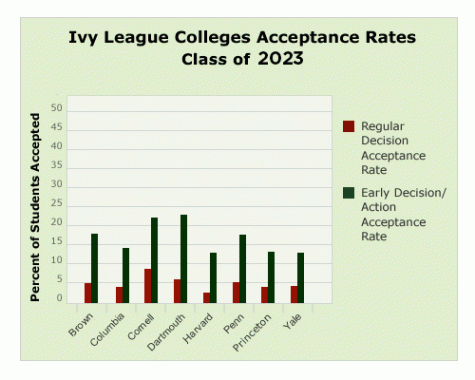
However, Ivy League schools are not the only schools that have seen this sharp decline. In the fall of 2022, the University of Texas at Austin announced an acceptance rate of 29%, the lowest rate of any public college in the state. UT Austin requires a holistic review of college applicants who do not graduate in the top 6% of their high school class. Additionally, for non-athlete, non-auto-admit applicants, UT Austin’s acceptance rate is as low as 9.5%, according to Ivy Scholars.
Kevin Martin, a former UT Austin college admissions counselor, noted that, “You could have 1600 on the SATs, 4.0 GPA, great resume and still get rejected from most or everywhere that you apply.”
The cause of this decrease is not only watered down to colleges becoming more selective with admissions, but also there are more students applying. 10 years ago, less than 20,000 students applied to Harvard, but by 2016 that figure doubled. Additionally, this competition at top colleges has been furthered by the belief that a degree from an Ivy ensures an immediate path to financial security and success. Moreover, the amount of college applicants is increasing, especially at top universities.
“A lot of seniors this year aren’t happy with their acceptances because of all this competition outside of school. There’s lots of rejections occurring, even though we go to a top school like Carnegie,” Muna Jallad said.
Furthermore, currently, the majority (90%) of the colleges elected to keep tests as an optional criterion for admission, including various top-20 universities: Cornell University, Brown University, the University of Chicago, Washington University, the University of Pennsylvania, Columbia University, Rice University, Dartmouth and more. This trend may continue to increase in future years, with tests possibly becoming completely optional nationwide. This in turn shifts the focus to other parts of a student’s application, rather than test scores and GPAs.
“Harvard is most likely going to accept somebody with all As. But if you don’t have those extracurriculars on top of your academics, it’s not going to make you look like a good student. You need to have some sort of balance, showing you can commit your time to school and to your passion,” Jallad said.
An additional new evaluation has also been placed on legacy admissions. There have been many concerns regarding admission preference to children of an institution’s alumni. This practice has also especially been criticized amongst top elite schools to pursue greater racial and socioeconomic diversity. For example, Caltech, Johns Hopkins University, MIT, Purdue and Amherst College have all taken steps to end legacy admission, which potentially contributes to this trend of decreased acceptance rates.
Because of the dropping college acceptance rates, more pressure and stress has been placed on students to get admitted into college. College rejections negatively impact self-esteem and lead to anxiety, depression or other mental health disorders which all require medical attention. Furthermore, 30% of kids aged 13 to 18 have issues with anxiety, and 13% of kids aged 12 to 17 deal with depression. Much of this stress is attributed to the additional pressures of getting perfect test scores and participating in the “best” extracurriculars.
However, 2024 promises somewhat of a bounce back from the record-low rates achieved last year. For example, Harvard’s acceptance rates reached 4.9% this year after reaching 4.5% in 2022. Acceptance rates of all colleges vary, and some majors are more competitive than others, but the prospective trend of acceptance rates for the future seems hopeful. Despite this, students should remain wary that applications exist in a competitive environment and that they shouldn’t assume guaranteed acceptance at any school.
Going to a good college is widely considered necessary to achieve stability and satisfaction; however, a study by Dale and Krueger found that going to a highly regarded university does not ensure long term success in terms of income and job security. Acceptance into an elite school is something to strive for, not something to let dictate your high school experience.
“Don’t let the competition and what other people say affect you, because in the end, it’s about your story and how you want to present yourself to others,” Jallad said.
Your donation will support the student journalists of Carnegie Vanguard High School. Your contribution will allow us to cover our annual website hosting costs and fund field trips, competition fees, and equipment. We appreciate your support!

John Nguyen is a math-loving student and aspiring Doctor from Houston, Texas. He is from a Vietnamese household and wishes to visit Vietnam, as well as...

Ella Pham is a junior at CVHS. She is part of Carnegie’s Competitive Dance Team and has been dancing since 6th grade; her favorite type of dance is contemporary....


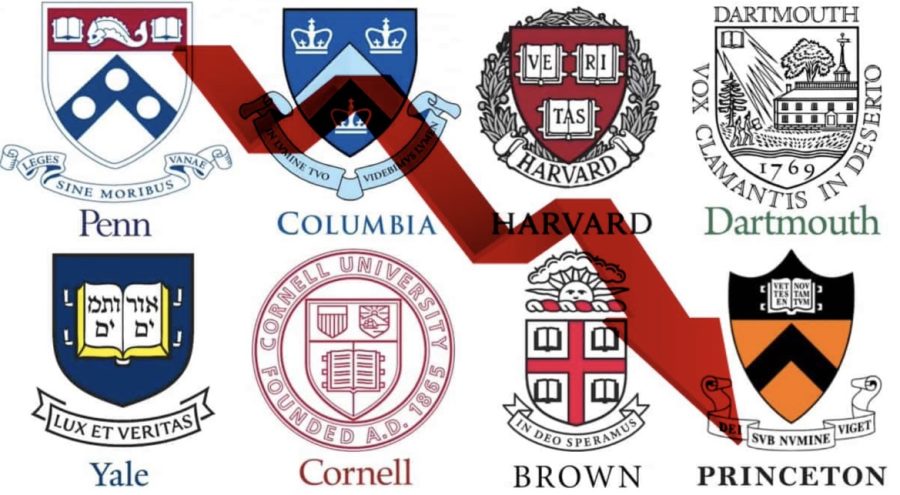
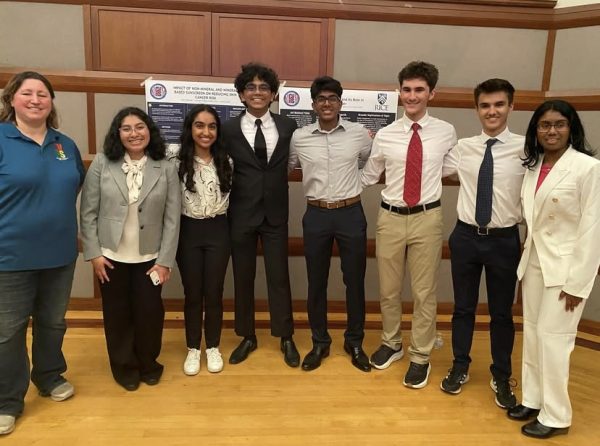


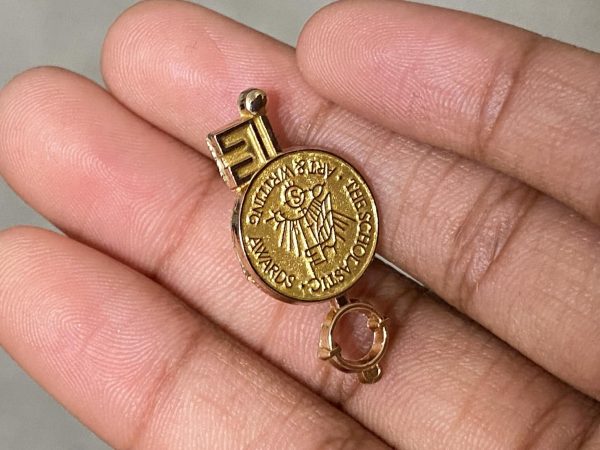
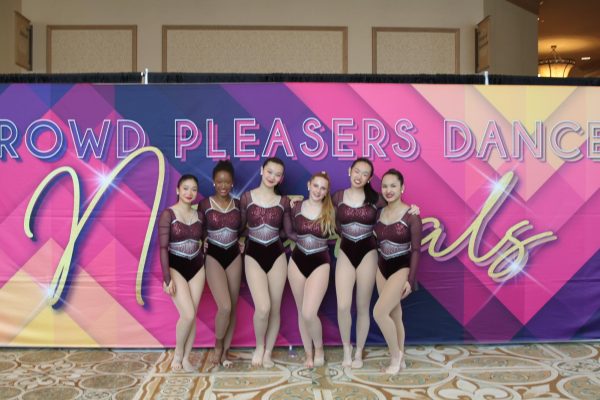
Dia Vaswani • Apr 24, 2023 at 10:38 am
Nice article! It is good to be informed about these since I am applying next year. I like how you guys interviewed seniors and showed stats for proof!
Sumedha Mohanty • Apr 24, 2023 at 10:06 am
I love how you guys added a lot of stats to support the information y’all were saying!
Roxell • Apr 24, 2023 at 10:06 am
We ain’t neva getting into college at this rate! Good article guys!